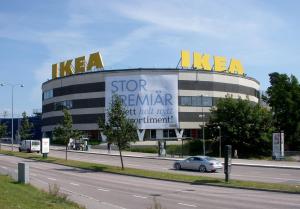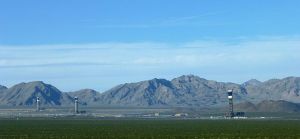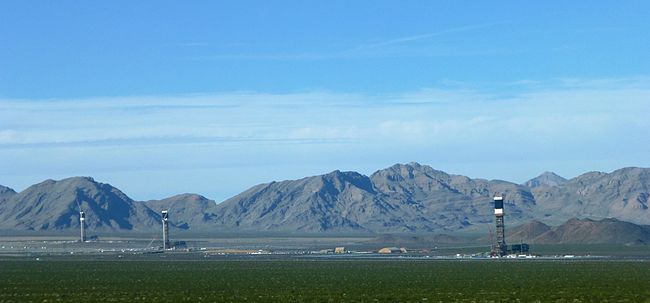Climate change is one of the biggest challenges that we’re facing today. Businesses around the world also recognize this. Tacking this problem also gives them one of the biggest economic opportunities. Climate change can cause damage to facilities, disrupt supply chains, jeopardize our supply of natural resources and our basic necessities such as food and water, if we do not check and balance the factors that are impacting the globe negatively. This will put the economy and future of marketplace into uncertainty, and risk. Companies around the world are already finding new ways to minimize global impacts and reduce this risk.
 Thousands of the influential businesses and investors recognize that transitioning to a low carbon is the only way to secure a sustainable economic growth. There is a trend towards the growth of low carbon technologies, and renewable energy sources around the world. Derek Markham, writes in an article published on the ecopreneurist.com titled: When It Comes To Climate Change, The B Team Means Business, that “Transitioning to a low-carbon economy is the way toward a more sustainable growth pattern, and businesses are well-suited to take up the task and take action on climate change, starting with their own operations.”
Thousands of the influential businesses and investors recognize that transitioning to a low carbon is the only way to secure a sustainable economic growth. There is a trend towards the growth of low carbon technologies, and renewable energy sources around the world. Derek Markham, writes in an article published on the ecopreneurist.com titled: When It Comes To Climate Change, The B Team Means Business, that “Transitioning to a low-carbon economy is the way toward a more sustainable growth pattern, and businesses are well-suited to take up the task and take action on climate change, starting with their own operations.”
Many big business chains like McDonalds, Costco, Kohl’s, Wal-Mart, IBM, Apple, IKEA ,and many other similar businesses are now investing in sustainable technologies, such as renewable energy sources, showing a reflection of the growing popularity of, particularly, solar power nationwide.
 According to the third annual Solar Means Business report released on Oct 15, 2014, “Business leaders in America’s brightest, most competitive companies are increasingly choosing to install solar energy systems at their facilities.” Businesses are not only choosing more solar in their facilities, but also those who have already installed solar are doing so again and again. These forward-looking companies are helping to create thousands of American jobs, boost the U.S. economy and improve our environment.” says Rhone Resch in his article titled: 25 Top Companies Investing in Solar.
According to the third annual Solar Means Business report released on Oct 15, 2014, “Business leaders in America’s brightest, most competitive companies are increasingly choosing to install solar energy systems at their facilities.” Businesses are not only choosing more solar in their facilities, but also those who have already installed solar are doing so again and again. These forward-looking companies are helping to create thousands of American jobs, boost the U.S. economy and improve our environment.” says Rhone Resch in his article titled: 25 Top Companies Investing in Solar.
IKEA has the highest number of solar powered facilities around the globe, with nearly 9 out of 10 of their stores now utilizing clean, reliable and affordable solar energy. General Motor is the second company in line with 43 percent of their facilities running on solar power.
McDonald’s began to collaborate with the World Wildlife Fund (WWF), Cargill, JBS and others in 2011 to develop the Global Roundtable for Sustainable Beef (GRSB). According to a statement on McDonald’s website, GRSB established guiding principles and practices for sustainable beef, is a first for the industry.
 The automotive industry is also making ground breaking progress towards sustainability with new developments in electric cars. The new and improved Tesla, is now more efficient, can get you 275 miles on a full battery, and with an acceleration rate of 0-60 in 3.2 seconds, which is better and faster than any gasoline run sedan.
The automotive industry is also making ground breaking progress towards sustainability with new developments in electric cars. The new and improved Tesla, is now more efficient, can get you 275 miles on a full battery, and with an acceleration rate of 0-60 in 3.2 seconds, which is better and faster than any gasoline run sedan.
David Crane, CEO of NRG Energy writes that “A remarkable consensus of the world’s leading scientists and academic experts, some of which come from your own university, tell us that we need to reduce greenhouse gas emissions by 80 percent (from present levels) by 2050 in order to avoid potentially catastrophic harm to the Earth’s environment. In a growing world, that size reduction is breathtakingly difficult to accomplish. You can be assured that it won’t just happen.”
But it is not possible for businesses alone to bring about changes as fast as collaboration government agencies, policymakers and business could do a lot to help kick start investments and innovation across a wide range of sectors to help meet the climate change challenge.
Hurricane Sandy, which took place in 2012, gave us a reminder of shifting climate patterns, putting emphasis on the need for new ways to manage our environment. There are growing levels of social unrest over rising inequality, unemployment austerity, political ineptitude, institutional failure, and so on, and companies will continue to fail because they misread the future.
Experts believe that there is a trend towards global redistribution of economic and social power, which will continue in the future. Power will flow away from traditional institutions that have failed to deliver progress – especially governments and banks. It will flow towards communities and individuals, and also to businesses whose leaders understand and act on the big trends shaping our future. (The Economist)
 Speaking of the future, take a moment and think about where you’ll be in 2050, 36 years from now. What will be the state of the environment of this planet 36 years into the future? You’ll be 36years older than what you are today, and your views on the globe will be a lot different then. I’m sure that you’ll have great many achievements in your life by then and you’ll also have a great many things to look forward to. As the human race progresses, I’m sure that we’ll find more breakthroughs to minimize greenhouse gas emissions, and we can hope to inhabit a planet which will be just as amazing and magical in the future as it is today.
Speaking of the future, take a moment and think about where you’ll be in 2050, 36 years from now. What will be the state of the environment of this planet 36 years into the future? You’ll be 36years older than what you are today, and your views on the globe will be a lot different then. I’m sure that you’ll have great many achievements in your life by then and you’ll also have a great many things to look forward to. As the human race progresses, I’m sure that we’ll find more breakthroughs to minimize greenhouse gas emissions, and we can hope to inhabit a planet which will be just as amazing and magical in the future as it is today.
We’ll be looking into the future world and how our economy and environment will shape up in the future, based on research, scientific evidence and beliefs in our future blogs, so please keep reading our articles.
P.S: We’d love to hear from you, so please add your comments in the comment box below, and don’t forget to share.
Source: Institute of Ecolonomics



